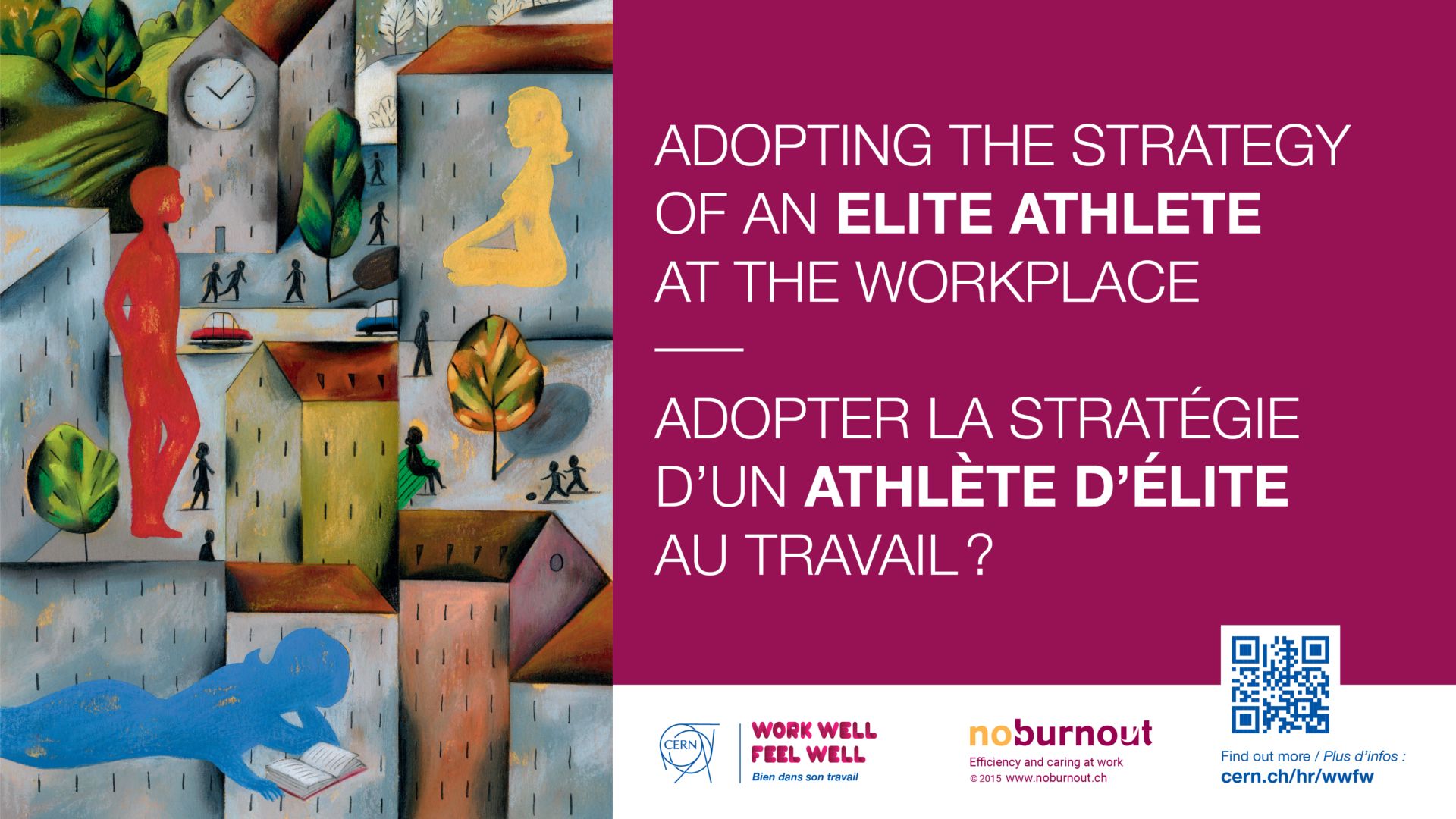Adopting the strategy of an elite athlete in the workplace
By: HR department
18 October, 2024 · Voir en français
Part seven of the Work Well Feel Well series looks at how to prepare for peaks in workload
Preparing physically and mentally
 The workload, fast pace and pressures of our professional lives can require performance levels similar to those of a competitive athlete.
The workload, fast pace and pressures of our professional lives can require performance levels similar to those of a competitive athlete.
While challenges can be stimulating and motivating, as time goes on they can also lead to the risk of exhaustion.
The strategy of an elite sportsperson can show us how to best manage high-level pressures on our body and our mind. Athletes manage their training rhythm and maintain their efforts throughout the year in cycles of three phases, organising each cycle around a competition:
- Preparation: athletes need to train physically and prepare mentally before a competition. This can involve using new equipment and practising different techniques.
- Maximum pressure: during a competition, athletes need to be fully focused. They must conserve their resources carefully, get a good night’s sleep and eat healthily.
- Active recovery: as the pressure eases after a competition, light training and stretching – as well as reflecting on possible changes for the future – can help an athlete to recover and prepare for the next big event.

In the workplace, our challenge is to develop work endurance and maintain our energy levels over the long term. Just like an athlete, we need to manage our rhythm and efforts to prepare for our own “competitions” – the periods of the year with the greatest workload.
What preparations do we need to manage stress during times of pressure?
After an intense and heavy workload, what can we do to relieve the pressure and actively recover?
Take action
As part of the “Efficiency and caring at work” campaign, the Work Well Feel Well website now offers useful resources that can be downloaded, including an exercise on respecting your own rhythm.
Other suggestions include:
- Stroke awareness: physical activity, a balanced diet and reduced stress are some of the ways to reduce the risk of strokes and cardiovascular diseases. Find out more on 17 October, when the CERN Medical Service and local partners are running a stroke awareness campaign ahead of World Stroke Day on 29 October.
- Cardiac coherence: watch the recording of the talk by the CERN Medical Service and psychologists on the topic of “cardiac coherence”, during which they offer practical advice and suggest exercises to help you to take a moment to find your own rhythm.
- Training courses: the CERN training catalogue includes courses on how to work smarter not harder, balance performance and pressure and assess resilience, to help you to look after yourself before, during and after periods of intense work.
